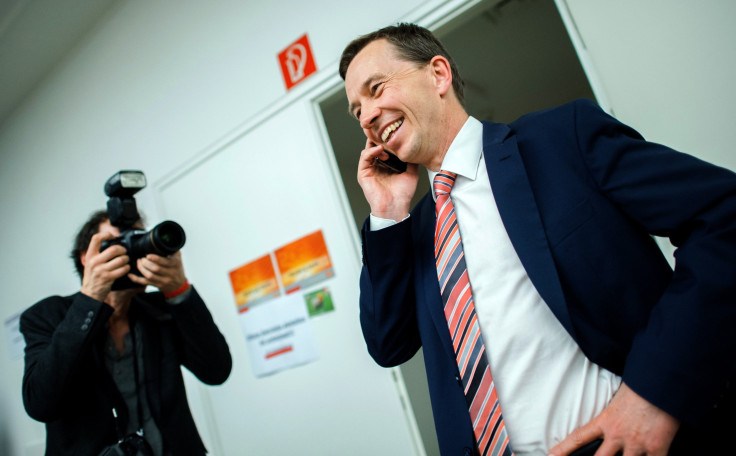Germany's Social Democratic Party Suffers Setback In Bremen But Will Retain Majority

Germany’s Social Democratic Party (SPD) will hold on to its majority in Bremen’s regional parliament, according to early results from Sunday’s election, despite suffering its worst electoral performance in the state since World War II. Despite earning 32.5 percent of the votes, the SPD lost about 6 percentage points from the most recent elections, in 2011, while its coalition partner, the center-left Greens, dropped 7 points.
Chancellor Angela Merkel’s ruling center-right Christian Democrats expected a disappointing gain of only 2 percentage points, earning 23 percent of the vote. The gains were tempered by the euroskeptic Alternative fuer Deutschland (AFD) party, which won just over 5 percent of the vote and barely crossed the threshold required for parliamentary representation.
Last year, the AFD, which also opposes immigration, won representation in the parliaments of Brandenburg, Saxony and Thuringia. In February, it won seats in Hamburg’s parliament too. The party, which opposes bailouts to Greece, does not yet have representation in the federal Bundestag.
The far-left Die Linke party also saw modest gains of more than 3 percentage points.
The Social Democrats have ruled Bremen, a port city in the country’s north, since 1946. Nearly a quarter of people there live in poverty, according to a recent report from a charity group, more than any other federal state.
Sunday’s results underline ongoing dissatisfaction with the SPD. Since 2013, the party has governed alongside the CDU on the federal level and, according to observers, struggled to distance itself from the policies of its ruling partner.
© Copyright IBTimes 2024. All rights reserved.






















